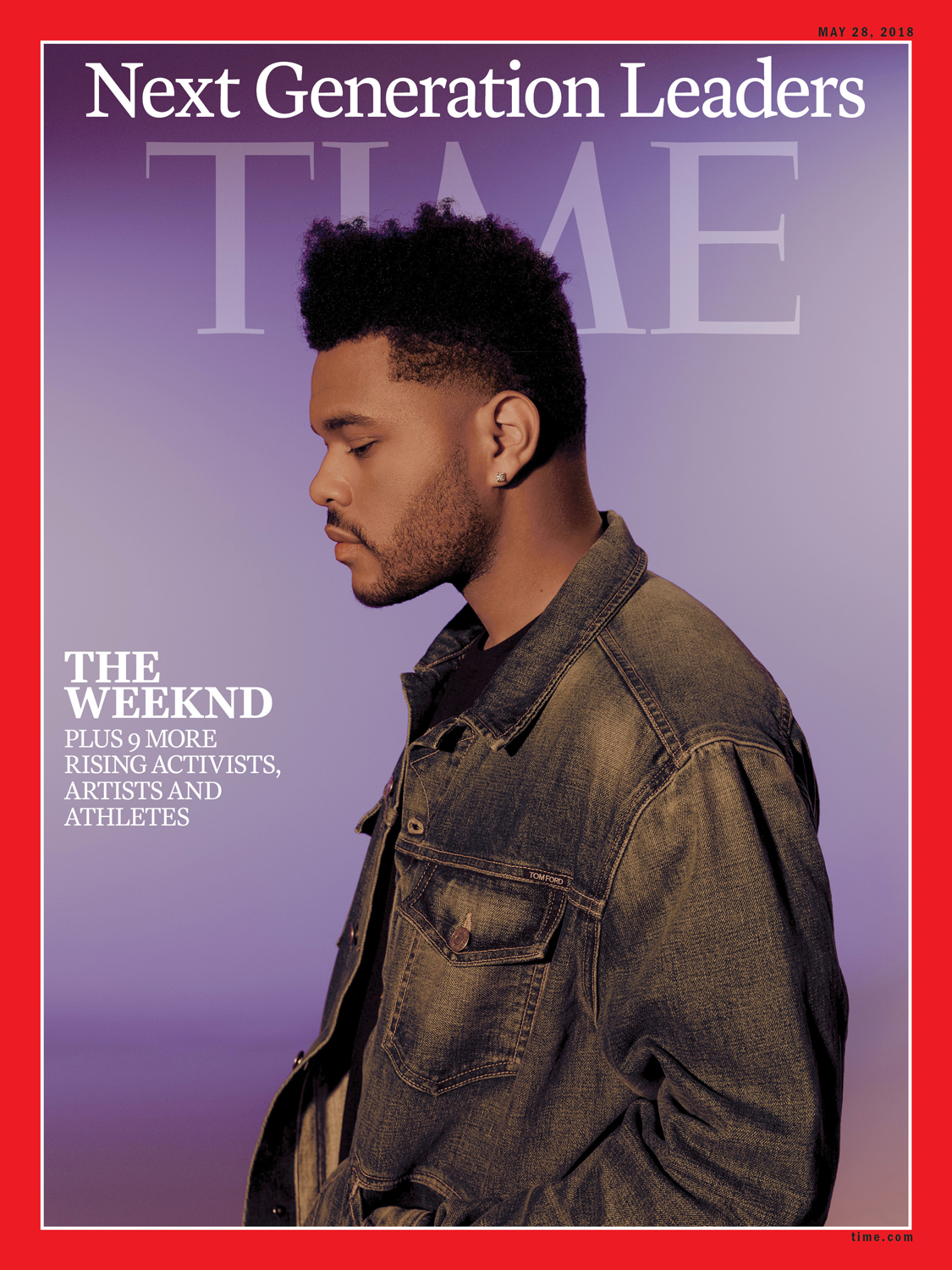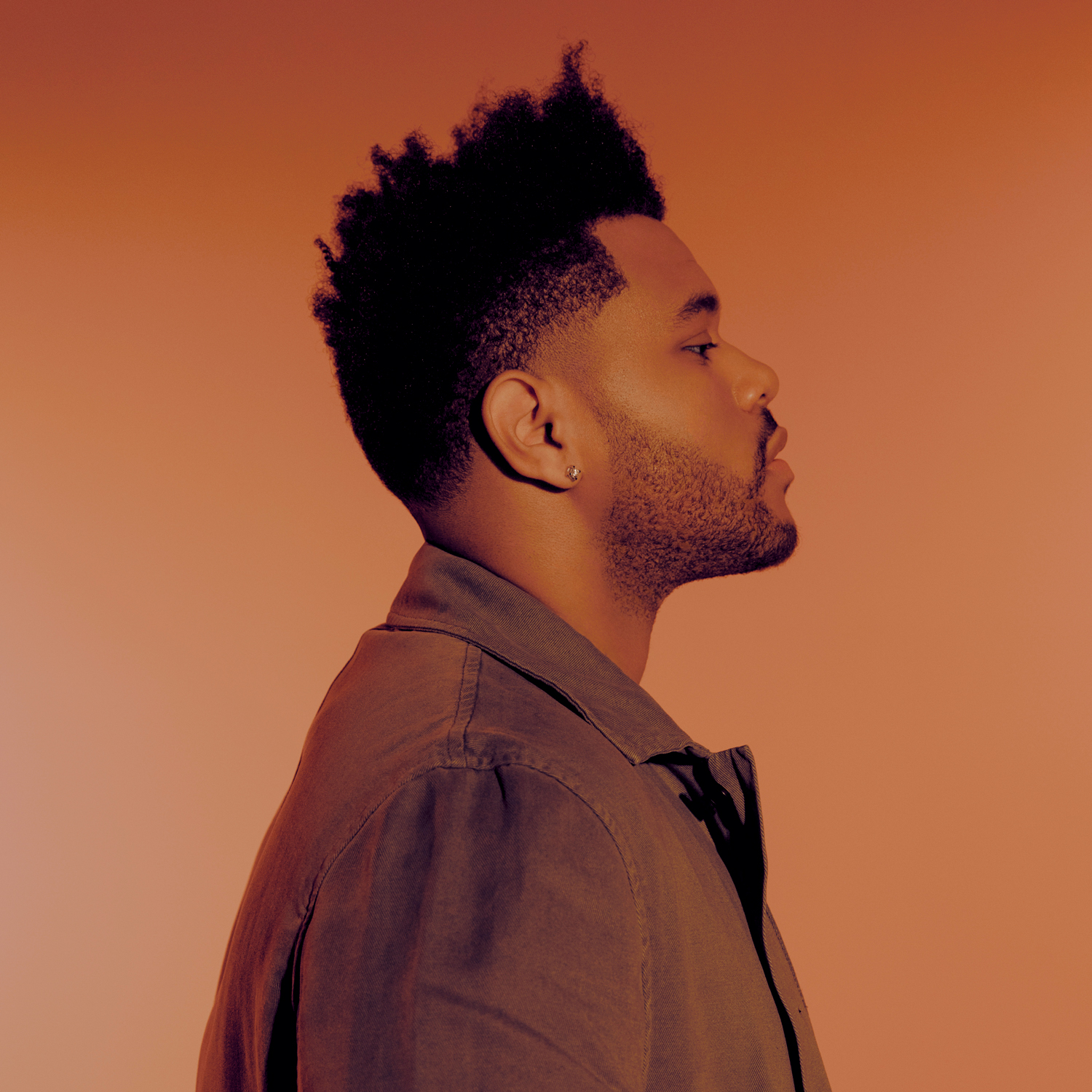Calabasas, Calif., is where celebrities go to hide, which is exactly why Abel Tesfaye moved there last year, to a bright and airy home in nearby Hidden Hills, where his neighbors include Drake and Kim Kardashian West. The house isn’t fully settled—plaques need to be hung and a wine refrigerator is not yet fully stocked, though there is a marble bust of what appears to be his own head in a corner. He likes it here, especially compared with Beverly Hills, where he felt too exposed. “I don’t think I could ever do that again,” he says. “I always feel like someone’s watching me.”
Tesfaye, better known to the public as the Weeknd, has made a career out of hiding in plain sight. When he began releasing music in 2010, he kept his persona intentionally vague, building buzz primarily via the Internet; fans grew to love him without knowing if he was a band or a solo singer. Now Tesfaye is a budding superstar, with a string of No. 1 hits (“The Hills,” “Can’t Feel My Face,” “Starboy”) and a new album, My Dear Melancholy, that tallied more than 25 million streams on Spotify and Apple Music, respectively, during its first 24 hours of release—among the best digital debuts of all time. In April, he headlined Coachella, opposite Beyoncé.
Yet as ubiquitous as he may now be, if you feel like you don’t really know the Weeknd, you’re not alone. He rarely grants interviews (his last was in November 2016), though that enigmatic tendency is born largely out of nervousness. “I think I would puke,” he says, if ever forced to do a live TV -inter-view. And he almost never talks about his personal life, though it’s easy to find paparazzi photos of him with women he has dated, like the actor and singer Selena Gomez and the supermodel Bella Hadid.

But in his music, Tesfaye tends to lay himself bare, serving up moody odes to love, drugs and sex. (“I only love it when you touch me, not feel me/ When I’m f-cked up, that’s the real me,” he sings on “The Hills.”) The songs are very good, with heavy, infectious beats and indelible hooks that exist in a space somewhere between R&B and pop. Tesfaye believes the songs resonate with millennials, in particular, as they navigate the first emotional turns into adulthood. Which makes sense, given that Tesfaye himself is 28. “The definition of the love we feel, or what kids and 20- and 18-year-olds are going through,” he says. “That music is special, and I feel like it’s what people need.”
Born in Toronto to Ethiopian immigrants, Tesfaye was raised primarily by his mother and grandmother. He dropped out of school when he was 17 and spent the next few years the way you imagine a teenager with no adult supervision might: drugs, shoplifting, quasi-homelessness. Between all that, he was also making music. “I’m not trying to inspire people to drop out of school or leave home at 16 or 17,” he says. “It’s just something that—it’s who I am.”
In 2015, he released Beauty Behind the Madness, which sold 2 million copies and won a Grammy; “Earned It,” his lead single off the Fifty Shades of Grey soundtrack, was nominated for an Oscar for Best Original Song. “I think the stars definitely did align for me,” he says. “Even though we put a lot of hard work into it, I just feel like it was right place, right time.” The following year, his third album, Starboy, debuted at No. 1, eventually going double platinum.
When we meet, Tesfaye is less than a week removed from headlining Coachella, which continues to be a sort of landmark for him. In 2015, he stepped in to close the second day of the festival after Jack White opted to perform earlier. “I feel like I worked my entire life for that moment,” he says. “Batter up, you know, this is your time to shine.” And he did. I can clearly recall the energy of the crowd, fully transfixed by the performance. His soaring vocals seemed to color the cool desert sky—you could almost feel his career taking flight. That moment was particularly triumphant after a disappointing Coachella set three years earlier, one that eventually prompted Tesfaye to tell Apple Music’s Zane Lowe that the 2012 version of the Weeknd “just wasn’t a star.”
It’s an interesting admission and one that allows a peek into his quiet yet dogged ambition. So many people are trying to be stars, but how many are willing to openly admit that? Perhaps Tesfaye can be frank because he’s allowed the comfort of knowing he already is one. Next he hopes to headline Glastonbury, joining names like David Bowie, Stevie Wonder, Paul McCartney and Beyoncé. I ask if there are certain achievements he’s checking off his list. “Yes. Definitely,” he says. Still, he seems less concerned with the glamour of awards and acclaim; rather, he’s recognizing that there are certain things legends do, and if he’s to be legend, he must do the same. There’s a focus in that approach that colors and quite obviously buoys his work.
Tesfaye’s latest EP, My Dear Melancholy, was almost immediately dubbed his “breakup album”—both because it was released several months after he and Gomez reportedly ended their relationship and because it includes some of his darkest songs yet, with titles like “Wasted Times” and “Hurt You.” He is cagey about particulars: “I don’t want to open that Pandora’s box, talking about relationships.” But he does admit that he’s single (“without a doubt”) and that recording the album was cathartic. “It’s therapeutic,” Tesfaye says. “You want to get it out. It’s like you close a chapter.”
The chapter almost stayed open, though. “Prior to Melancholy, I had a whole album written, done,” Tesfaye says. “Which wasn’t melancholy at all because it was a different time in my life.” I ask if that album, presumably recorded while he was still with Gomez, was more upbeat. “Yeah,” he says. “It was very upbeat—it was beautiful.” But he scrapped the project because he’s moved past that part of his life. “I don’t want to perform something that I don’t feel,” he says. Will we ever hear it? “Never,” he insists.
Late in the afternoon, I ask about the two identical white doghouses sitting against the main house. Tesfaye smiles proudly before asking if I like dogs, and summons out his two Doberman pinscher puppies, Caesar and Julius. He demonstrates how well trained they are and boasts that eventually they’ll be twice the size they are now. They know how to swim, he says, but he’s working on teaching them how to get out of the pool. In that moment, he’s a man relaxing with his dogs on lazy spring day. The Weeknd’s veil of mystery may never be completely lifted, but a peek behind lets you see plenty.

- How Nayib Bukele’s ‘Iron Fist’ Has Transformed El Salvador
- What Makes a Friendship Last Forever?
- How to Read Political Polls Like a Pro
- Long COVID Looks Different in Kids
- What a $129 Frying Pan Says About America’s Eating Habits
- How ‘Friendshoring’ Made Southeast Asia Pivotal to the AI Revolution
- Column: Your Cynicism Isn’t Helping Anybody
- The 32 Most Anticipated Books of Fall 2024